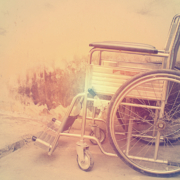Common Forms of Nursing Home Abuse
When an aging loved one is no longer able to care for themselves, family members often have no other practical choice than to place them in a nursing facility. By doing so, they place their loved one’s care and quality of life in the hands of those who operate and work for the facility. Sadly, far too many nursing homes have violated their duty to provide even a minimum standard of care to their residents, and this problem has only gotten worse in recent years.
According to a U.S. Government Accountability Office (GAO) report published last year, the number of cited abuse in nursing home facilities more than doubled over a five-year period from 2013 through 2017. In addition, the GAO found that nearly 43% of the abuse deficiencies in 2017 were cited at the highest levels of severity, compared with only 32% in 2013.
It is not hard to see why cases of nursing home abuse are on the rise. Our population is aging, and an average of 10,000 Americans turn 65 years old every single day. At the same time, there has been consolidation in the nursing home industry as well as an increase in the number of for-profit facilities. To top it all off, we have an extremely tight labor market that makes it more difficult to adequately staff nursing facilities, and those who are hired tend not to be properly vetted or trained for their positions.
One of the most alarming findings from the GAO report was the widespread lack of enforcement when an incident of nursing home abuse occurs. They found that enforcement actions are imposed but not implemented in about one-third of reported nursing home abuse cases, and in only 8% of all reported cases, an enforcement action is actually implemented. This means that in roughly 92% of abuse cases that get reported, nothing of any consequence is done about it.
What are the Most Common Types of Nursing Home Abuse?
The GAO places abuse perpetrated upon nursing home residents into three general categories:
- Physical Abuse: Pushing, punching, hitting, slapping, beating, and striking a resident/patient with an object are some examples of physical abuse that occur frequently in nursing facilities. This type of abuse tends to happen because many nursing home employees lack the temperament needed to work with the elderly. They get frustrated, fly off the handle, and take out their frustrations on those under their care. Of course, there are some that simply do this because of poor character.
- Verbal/Psychological Abuse: Nursing facility residents depend heavily on their caregivers to meet all of their needs. This makes them extremely vulnerable to various forms of verbal and psychological abuse. These may include insults, threats, intimidation, humiliation, and harassment. A caregiver may also isolate a resident/patient by ignoring them or keeping them from visiting with other residents.
- Sexual Abuse: As hard as it is to imagine, sexual abuse happens to the elderly in nursing facilities far more frequently than most people realize. According to a CNN investigation from a couple years back, more than 1,000 nursing facilities throughout the country were cited for mishandling suspected cases of sexual abuse. This type of abuse can come in many forms, including inappropriate touching or fondling, sexual harassment or humiliation, forced nudity, and assault. Many predators see the elderly as easy targets, particularly those with Alzheimer’s or other forms of dementia who may have difficulty remembering what happened or getting anyone to believe their story.
Was your Loved One Abused in an Alabama Nursing Home? Contact M. Adam Jones and Associates for Assistance
With so many of the elderly being subjected to nursing home abuse, family members need to be ever vigilant in ensuring that this does not happen to their loved ones. One of the best ways to accomplish this is to be proactive and stay as involved as possible in their care. Visit them frequently, get to know their caregivers, and speak with their caregivers and supervisors regularly. By doing this, you will demonstrate to the facility that you expect nothing less than the best quality of care for your aging loved one.
If you have good reason to believe that your loved one is being abused, you need to take steps right away to put a stop to this. Report nursing home abuse to the proper authorities, and if your loved one is in immediate danger, call 911. Next, contact us to discuss your legal options. Call us today at 334-581-9238 or messages online to speak with a member of our legal team about your case. You may also stop by our Dothan, AL office in person at your convenience. We look forward to serving you!





Leave a Reply
Want to join the discussion?Feel free to contribute!